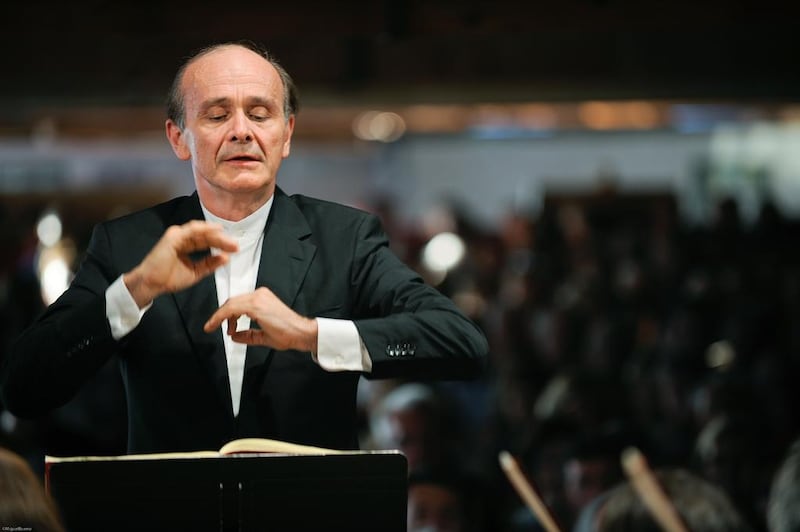Conducting an orchestra for opera is no mean feat, says Gábor Takács-Nagy. The Hungarian violinist and conductor will lead the Budapest Festival Orchestra that will be accompanying Juan Diego Flórez’s Night at the Opera at Emirates Palace on Monday, March 23. He jokingly describes playing with a singer as “like following a drunk instrumental soloist”.
“It’s a big challenge because you have to follow the singer’s breathing,” he says. “If I am working with an instrumental musician, I can see the violinist’s bow, the pianist’s hands – but with a singer, you have to know that if they are reaching a particularly beautiful note, they may improvise the length.
“It’s not totally predictable and if the conductor is not following the singer’s breathing, it’s a fiasco.”
Not that he is too worried about the performance of the orchestra, for which he is principal guest conductor, at the Abu Dhabi concert, however.
“Juan Diego Flórez is such a wonderful performer and the BFO is brilliant with opera-playing because they’re doing so many operas on a world-class level.” he says. “I’m really getting a Rolls-Royce to drive with them, as they’re such an intelligent, warm-hearted group, so proud to be Hungary’s best orchestra.”
If Takács-Nagy expresses a warm solidarity with the musicians he leads, it’s hardly surprising. As a founding member of one of the world’s best string ensembles, the Takács Quartet, he’s also had his own impressive career as an instrumentalist.
I wonder whether he finds it strange to hand over the playing to the BFO’s musicians.
“Still today, every time I go onstage I have to tell myself that the orchestra are playing, not me,” he says. “In the beginning, I used to want to play with them, physically in my conducting gestures, which can be unclear and confusing. Sometimes I have to really concentrate not to sing with them. Still today, I find the process enigmatic and genuinely fascinating.”
Through his transition from performer to conductor, his sense of music’s mission has remained strong as ever.
“For me, music is a spiritual medicine that changes people’s lives,” he says. “It transports them away from their problems. For a magical moment, music really lets us get away from the Earth.”
artslife@thenational.ae





